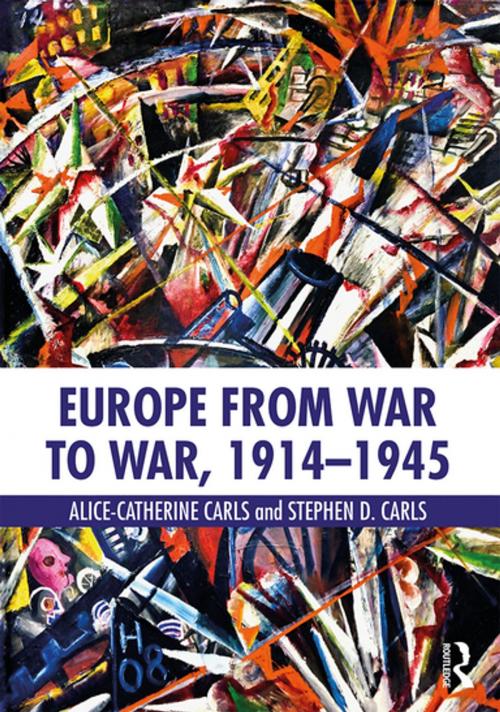| Author: | Alice-Catherine Carls, Stephen D. Carls | ISBN: | 9781351659598 |
| Publisher: | Taylor and Francis | Publication: | November 2, 2017 |
| Imprint: | Routledge | Language: | English |
| Author: | Alice-Catherine Carls, Stephen D. Carls |
| ISBN: | 9781351659598 |
| Publisher: | Taylor and Francis |
| Publication: | November 2, 2017 |
| Imprint: | Routledge |
| Language: | English |
Europe from War to War, 1914–1945 explores this age of metamorphosis within European history, an age that played a crucial role in shaping the Europe of today. Covering a wide range of topics such as religion, arts and literature, humanitarian relief during the wars, transnational feminism, and efforts to create a unified Europe, it examines the social and cultural history of this period as well as political, economic, military, and diplomatic perspectives.
Thematically organized within a chronological framework, this book takes a fully comparative approach to the era, allowing the reader to follow the evolution of key trends and ideas across these 30 turbulent years. Each period is analyzed from both an international and a domestic perspective, expanding the traditional narrative to include the role and impact of European colonies around the world while retaining a close focus on national affairs, everyday existence within Europe itself and the impact of the wars on people’s lives. Chapters include discussion of regions such as Scandinavia, the Balkans, and Iberia that are less frequently covered, emphasizing the network of connections between events and places across the continent.
Global in scope, accessibly written and illustrated throughout with photographs and maps, this is the perfect introductory textbook for all students of early twentieth-century European history.
Europe from War to War, 1914–1945 explores this age of metamorphosis within European history, an age that played a crucial role in shaping the Europe of today. Covering a wide range of topics such as religion, arts and literature, humanitarian relief during the wars, transnational feminism, and efforts to create a unified Europe, it examines the social and cultural history of this period as well as political, economic, military, and diplomatic perspectives.
Thematically organized within a chronological framework, this book takes a fully comparative approach to the era, allowing the reader to follow the evolution of key trends and ideas across these 30 turbulent years. Each period is analyzed from both an international and a domestic perspective, expanding the traditional narrative to include the role and impact of European colonies around the world while retaining a close focus on national affairs, everyday existence within Europe itself and the impact of the wars on people’s lives. Chapters include discussion of regions such as Scandinavia, the Balkans, and Iberia that are less frequently covered, emphasizing the network of connections between events and places across the continent.
Global in scope, accessibly written and illustrated throughout with photographs and maps, this is the perfect introductory textbook for all students of early twentieth-century European history.















